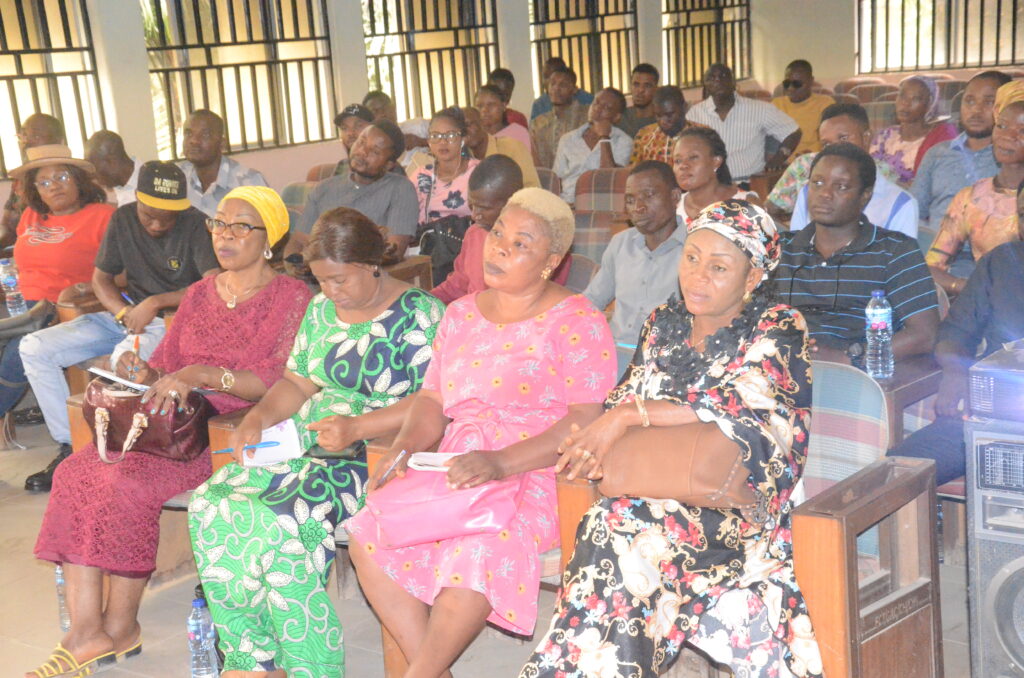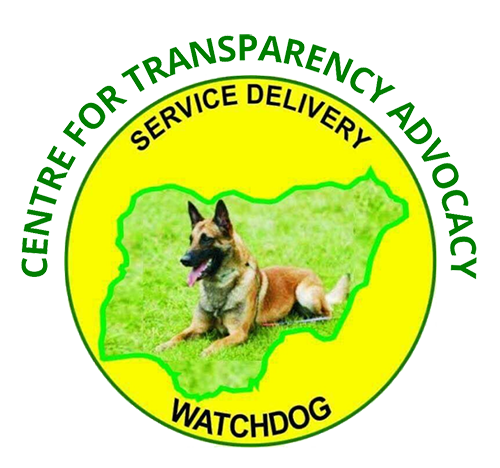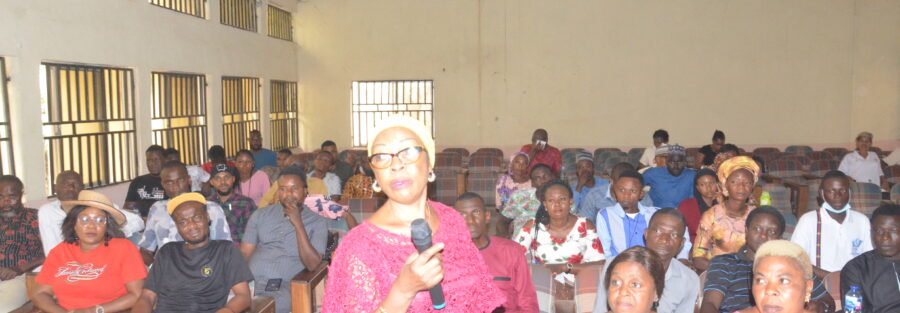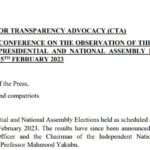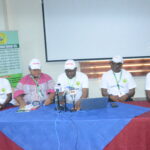Centre for Transparency Advocacy (CTA), an election observation group that has observed elections in the country and all the off-season elections leading to the 2023 general elections, will be observing this election by deploying 2000 observers (made up of at least 2 observers per 774 LGA) across the country, including our expert team.
These observers were trained on election observation, the Electoral Act of 2022, and adherence to INEC election guidelines.
The CTA will also be setting up an Election Day Situation Room in Abuja to receive reports in real time from the field observers
- OBJECTIVES
- To equip selected Observers with knowledge, attitude and skills relevant to election observation
- Observers to understand their roles and responsibilities; to carry out their duties responsibly, efficiently and effectively
- To deploy trained observers to selected polling units on election day
- To acquaint observers with the Covid-19 Protocols on election day
- PARTICIPANTS / PROFILE
The meeting had in attendance 82 persons who participated in the training from different Area Councils, districts and communities in the FCT.
SUMMARY OF PROCEEDINGS
INTRODUCTION / OPENING FORMALITIES
The meeting started with the second stanza of our national anthem, recited by all, followed by a self-introduction of participants
OPENING REMARK BY CTA EXECUTIVE DIRECTOR
The welcome remarks were delivered to the observers who were participating in a training program for the upcoming 2023 General Elections. The remarks emphasized the importance of the role of observers in ensuring free, fair, and credible elections in the country.
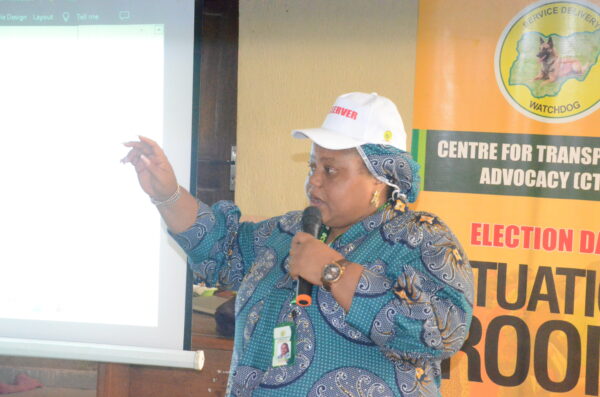
ED CTA Engr. Faith Nwadish training the observers
In Summary:
She welcomed the observers to the training program, and it was highlighted that their participation was a critical step towards upholding the integrity of the electoral process. The training program was designed to equip the observers with the necessary knowledge and skills to carry out their duties effectively. The observers were to learn about the electoral laws, regulations, and procedures, as well as the code of conduct for observers. Practical guidance was also provided on how to observe the elections, document their findings, and report any concerns or incidents.
The Executive Director emphasized the role of observers in the election and mentioned that their presence and vigilance would contribute significantly to the transparency and credibility of the electoral process.
Conclusion:
She wished the observers all the best as they embarked on the training program. The observers were encouraged to work together to ensure a successful and peaceful 2023 General Elections.
EXPECTATIONS FROM THE TRAINING
The participants listed out some of their expectations from the training as;
- How to conduct and discuss with people in polling units and how to observe the COVID-19 protocols
- To know safety tips as an observer
- To know what to expect on the field
- Addressing issues of the PWDs on the field
- To know if observers are eligible to vote
OVERVIEW OF ELECTION OBSERVATION AND EXPECTATIONS FROM OBSERVERS BY BABATUNDE OLUAJO
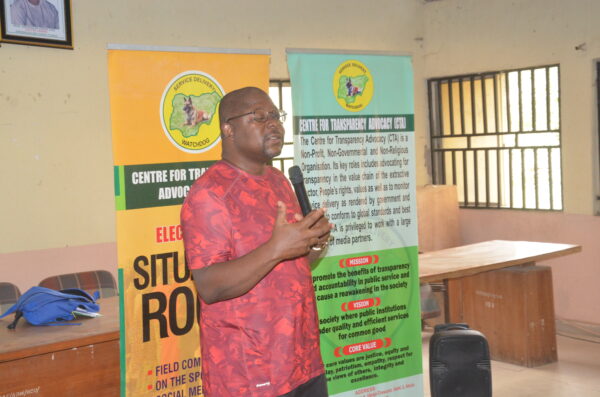
In his introduction, he focuses on the definition and role of election observation, as well as the guidelines and requirements for effective election observation. The report also highlights the historical background of international election observation.
In summary:
He stated that the International Institute for Democracy and Electoral Assistance (IDEA) defines election observation as the gathering of information on an electoral process to make informed judgments on its conduct. The Independent National Electoral Commission (INEC) views election observation as the process of observing elections against set standards to identify flaws and make recommendations for improvement.
Election observation covers the entire electoral process, including before, during, and after elections. It is a valuable tool for improving the quality of elections, and effective observation begins with monitoring the writing of laws that establish the electoral framework and ends with the resolution of electoral disputes.
Observers are independent individuals or organizations responsible for monitoring the electoral process but have no active participation and do not interfere with the conduct of the process. Non-partisan observation is carried out by civil society or non-governmental organizations, the media, and individuals who have chosen to observe the electoral process out of a sense of civic duty and commitment.
The 1999 Constitution of Nigeria recognizes the sovereignty of the people and their right to participate in their government through periodic and genuine elections held by universal and equal suffrage. Election observation is therefore based on the human rights principle that the will of the people should be the basis of the authority of the government.
Effective election observers should be able to read and follow instructions, have a smartphone, not be a candidate or politician, be interested in election observation, have good interactive skills, have general knowledge of the community in which they will be working, be available all day on election day, and be willing to sign a pledge/code of conduct governing their behaviour as an election observer.
In conclusion:
He emphasized that election observation is critical to ensuring free, fair, and credible elections, and independent non-partisan citizen observation is based on the human rights principle that the will of the people should be the basis of the authority of the government. The report highlights the historical background of international election observation and the guidelines and requirements for effective election observation.
CODE OF CONDUCT
He listed out some of the INEC code of conduct for observers as;
- Observers will respect the laws of the land. They enjoy no special immunities as observers.
- Observers will be subject to the direction and management of the observer team leadership, carrying out their written terms of reference and covering the geographical schedules specified by team leaders.
- Observers should be aware of the presence of other electoral observation groups and liaise with them as may be necessary.
- Observers will carry with them prescribed identification issued by the election management body and will identify themselves to any interested authority upon request.
- Observers will maintain strict impartiality in the conduct of their duties, and shall at no time express any bias or preference in relation to national authorities, parties, candidates, or with reference to any issues in contention in the election process.
- Observers will not display or wear any partisan symbols, colours or banners.
- Observers will undertake their duties in an unobtrusive manner, and will not disrupt or interfere with the election process, polling day procedures, or the vote count.
- Observers may bring irregularities to the attention of the election officials, but will not give instructions or countermand decisions of the election officials.
- Observers will base all conclusions on well-documented, factual, and verifiable evidence, and will keep a record of the polling stations and other relevant places that they visit
- Observers will refrain from making any personal or premature comments about their observations to the media or any other interested persons but should provide, through a designated liaison officer or spokesperson, general information about the nature of their activities as observers.
- Observers will participate in post-election de-briefings with their supervising officers and will contribute fully towards reports on the elections being observed.
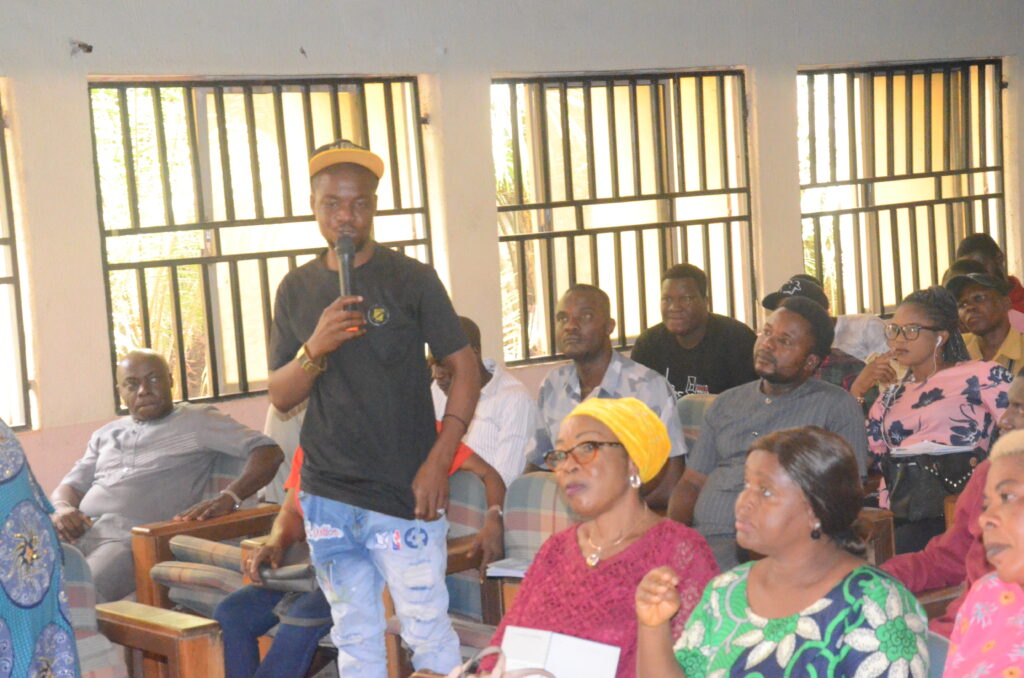
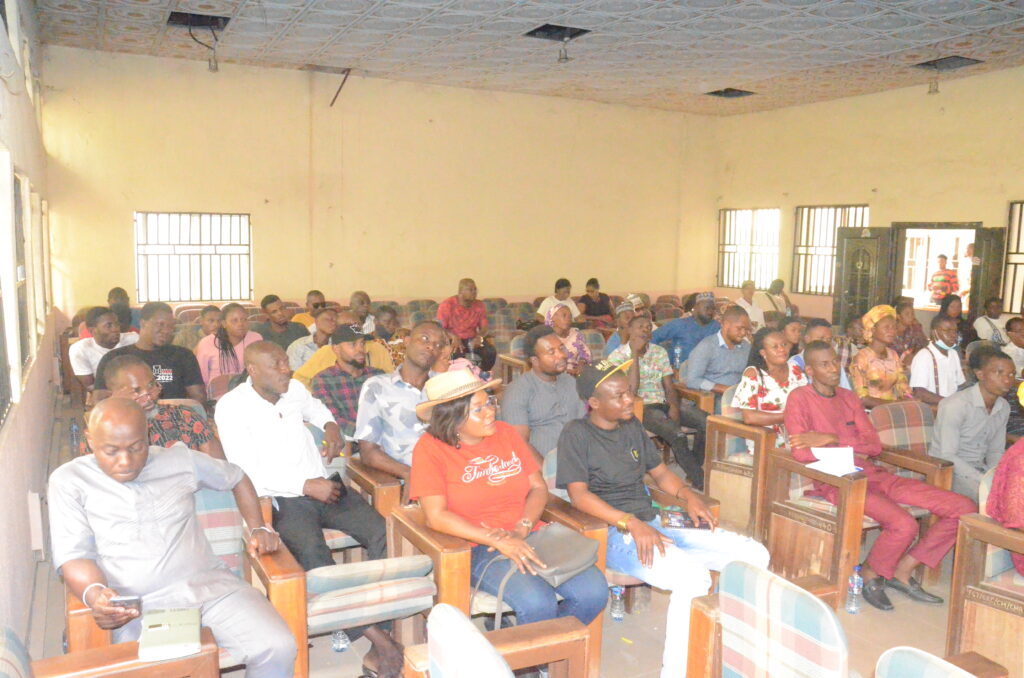
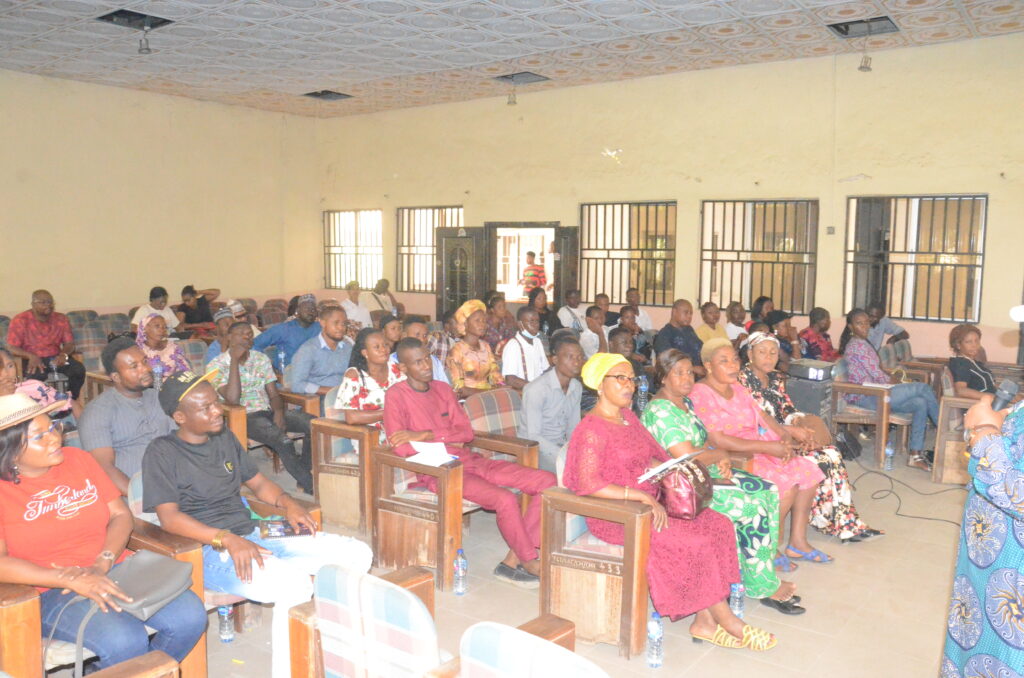
Cross-section of Observers during the training session
